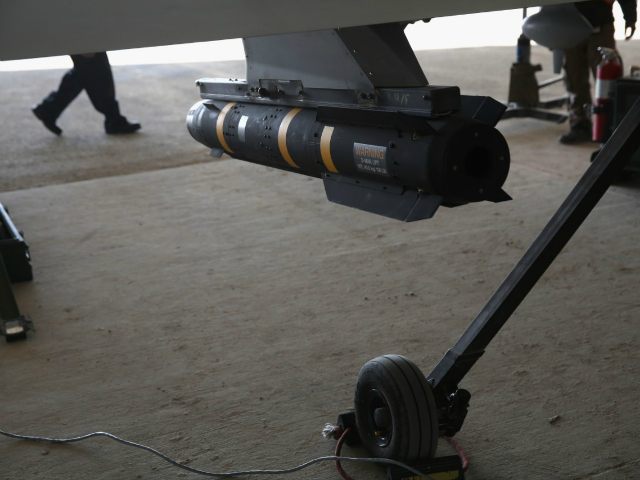Last week, the Wall Street Journal broke the amazing story of a Hellfire missile—more precisely, a technically accurate training missile with an inert warhead—that somehow ended up in Cuba, ostensibly due to human error.
To put it simply, the shipping company accidentally mailed it to Havana instead of sending it to Florida. Hellfire missiles are an important part of the U.S. weapons inventory, so it is troubling to think bad actors could be studying them to improve their own weapons or devise counter-measures against the American arsenal.
Writing at his D.C. Dispatches blog, attorney Jason Poblete has some interesting follow-up questions about this story, chief among them: Was Congress aware of the missing Hellfire? If so, why did they not speak up, at a moment when President Obama was adjusting U.S. policy towards Cuba?
It is easy to see why the administration would want to keep the missing missile, and the Castro regime’s obstinate refusal to return it, out of the public eye while relations with the island gulag were being “normalized,” but one would think members of Congress opposed to President Obama’s policy would have spoken up.
Poblete argues it is improbable that Congress would not have known about the missile and, in fact, claims congressional sources who assured him several key members and their staffers were in the loop. He argues that it was hypocritical for knowledgeable members to sit on the Hellfire story while opposing Obama’s Cuba policy on other grounds… or possibly “collusion” with the administration to keep the story secret until now.
Others are sounding the alarm not because of what it implies of those who lost the missile, but how those who found it can use it against the United States. As Mary Anastasia O’Grady at the Wall Street Journal points out, Cuba is just about the only friend the pariah regime in North Korea has: “In the past 2½ years Cuba has tried to smuggle weapons to Pyongyang, engaged in high-level meetings with North Korean officials, and secured US military technology. Anybody want to connect the dots?”
O’Grady dismisses the official excuse about human error shipping the Hellfire to Cuba out of hand, arguing that “stealing weapons technology is what spies do for a living, and getting hold of a sophisticated piece of U.S. equipment is a major coup for Havana.”
On the other hand, Graham Templeton at ExtremeTech argues that exposing Hellfire technology to Cuba might not matter all that much because that technology is already available. Not only is there a strong possibility that hackers have looted Hellfire data during numerous raids on U.S. systems, but the weapons have been sold to dubious allies like Iraq, Saudi Arabia, and Turkey, who would have had many opportunities to share Hellfire tech with their even more dubious allies.
And then there is the Islamic State, which grabbed a good $700 million worth of fully operational Hellfire missiles when it captured the Iraqi city of Mosul. “Remember that ISIS doesn’t have much in the way of air power to actually fire said missiles, so we can only assume that the cash-hungry organization at least tried to sell them off,” Templeton writes.
“Compared with these and other Hellfire-related breaches or risks, it seems hard to justify being all that upset about a dummy missile ending up in Cuba,” he continues. “It’s certainly embarrassing, and doubly so because Cuba is refusing to return the thing, but anyone who might credibly buy it from Cuba, and to whom Cuba might credibly sell it, could easily have been a potential Hellfire customer for a long time now through overtures to even less-ethical actors.”
That only adds to the mystery of why the Hellfire bungle or theft occurred, why it was kept under wraps for so long, and why it is surfacing now. Maybe some of this story manipulation is intended to make the Hellfire in Cuban hands seem like a bigger deal than it really is, to distract bad actors and give them a distorted impression of where the cutting edge in American missile technology lies.

COMMENTS
Please let us know if you're having issues with commenting.